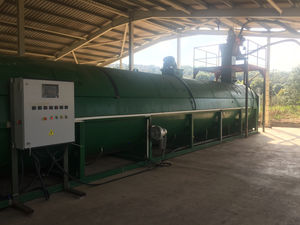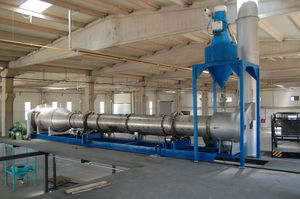
Laboratory coating machine for grain products

Add to favorites
Compare this product
Characteristics
- Options
- laboratory
- Applications
- for grain products
Description
Coating machine is a specialized piece of equipment used to apply thin layers of material onto a substrate. These coatings can serve a variety of purposes, such as improving the surface properties of the substrate, enhancing its appearance, or providing protection against environmental factors. Researchers and developers commonly use laboratory coating machines to test the performance of coatings under various conditions. These machines also produce small batches of coated products, such as coated granules in the fertilizer industry. Laboratory coating machines come in a variety of sizes and designs and can coat various substrates.
Coating Parameters
Coating thickness: This refers to the amount of coating material applied to the substrate, and is typically measured in micrometers or millimeters.
Coating uniformity: This refers to the degree to which the coating is evenly distributed across the surface of the substrate.
Coating porosity: This refers to the presence of small holes or voids within the coating, which can affect its performance.
Coating adhesion: This refers to the strength of the bond between the coating and the substrate, and is important for the durability and performance of the coated product.
Coating drying time: This refers to the amount of time required for the coating to fully cure or harden after it has been applied.
By carefully controlling these and other coating parameters, it is possible to achieve coatings with specific desired properties and performance characteristics.
Catalogs
No catalogs are available for this product.
See all of Genema makine‘s catalogs*Prices are pre-tax. They exclude delivery charges and customs duties and do not include additional charges for installation or activation options. Prices are indicative only and may vary by country, with changes to the cost of raw materials and exchange rates.








